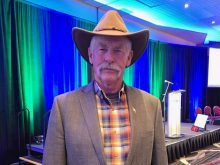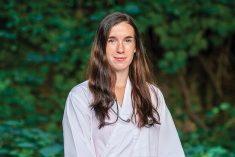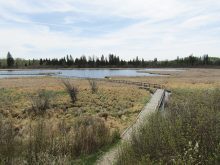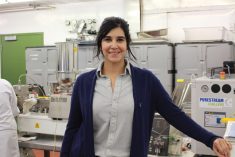A Manitoba research scientist has earned top accolades from the Beef Cattle Research Council for her work on sustainability and the cattle sector.
Kim Ominski of the University of Manitoba received the 2023 Canadian Beef Industry Award for Outstanding Research and Innovation at the Canadian Beef Industry Conference in Calgary Aug. 16.
Why it matters: Ominski’s research has been nationally credited for shifting public understanding of the beef sector’s sustainability.
“I am sincerely honoured and humbled to win this award, because it is from Canadian beef producers,” Ominski said.
Read Also
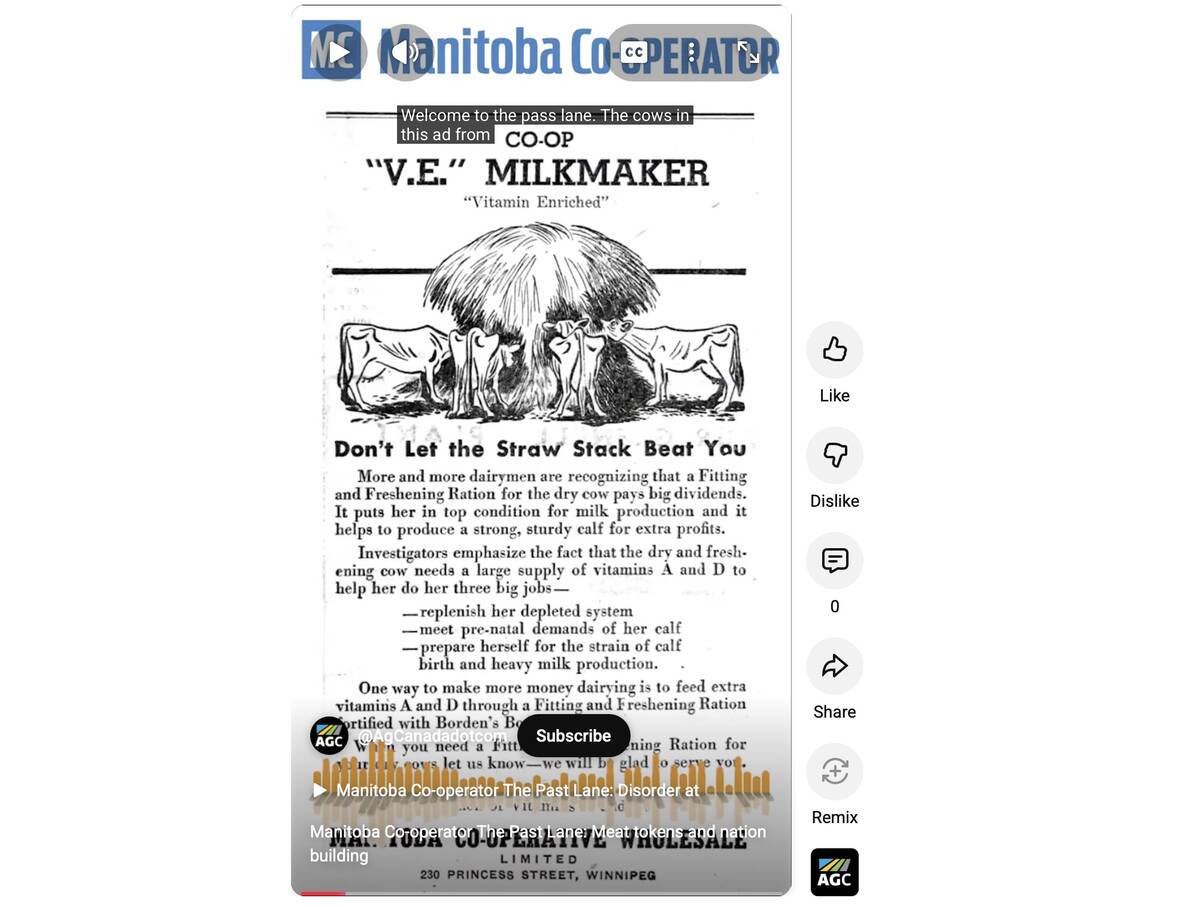
VIDEO: Manitoba’s Past Lane – Jan. 31
Manitoba, 1946 — Post-war rations for both people and cows: The latest look back at over a century of the Manitoba Co-operator
“I am truly grateful. Although my name is on the award, this work would not have been possible without the dedication and commitment of many other scientists, technicians, post-docs and students.”
Ominski is a researcher, professor and acting department head at the University of Manitoba’s animal science department, where she received her doctorate in nutritional biochemistry in 1994. Her first area of expertise was ruminant nutrition, before expanding into the cattle sector’s environmental and human health implications.
After graduation, Ominski worked as a livestock specialist with the provincial ag department based out of Teulon, Man. She worked with beef and dairy producers and delivered extension presentations throughout eastern Manitoba and the Interlake.
That period “helped me meet a large number of producers and extension personnel,” she said. “More importantly, it helped me to better understand the challenges and opportunities facing these sectors, which are critical in both teaching and research.”
Ominski’s colleagues at the university noted her commitment to outreach, noting it’s one of the reasons she’s such an asset.
“Kim has been quick and committed to accessing numerous avenues to extend research outcomes to industry,” said Karen Wittenberg, dean emeritus of the faculty of agricultural and food sciences at the U of M.
Her “enthusiasm for communicating a modern agriculture that embraces sound environmental stewardship extends beyond research and industry circles to students and the general public,” Wittenberg added.
Ominski is also the director of the National Centre for Livestock and the Environment at the university. The centre was developed as a community of researchers, industry stakeholders and students, with a focus on multi-disciplinary, multi-agency research into sustainability in Canadian livestock industries.
Among her work, Ominski co-led an environmental footprint assessment of the Canadian beef industry. Her research demonstrated significant reductions in the industry’s carbon footprint over the past three decades, as well as improved water use efficiency and reduced ammonia emissions per kilogram of beef produced.
“The reduction in emissions intensity has largely come about through improvements in production efficiency,” she said.
This includes improvements in animal production, such as increased weaning weight and carcass weight, as well as improvements in feed crop production.
Her work in this realm has become a game-changer, providing science-based evidence of the beef sector’s shrinking environmental footprint and changing how beef production in Canada is discussed, the industry has said. Her data has, for example, been featured in ads put out by McDonald’s Canada.
Ominski said work like hers is important in the fight against misinformation.
“Many Canadians have not had the opportunity of growing up on or even visiting a farm,” she said. “It is difficult [for them] to appreciate the challenges and the complexities of our agro-ecosystems.”
Most people would agree that grassland preservation is important, she said, but the role of cattle in those ecosystems is less apparent for the average person.
“Many of these grasslands are not suitable for crop production, but cattle can convert the highly fibrous forage to high-quality protein, which is critical to supporting our growing global community.”
Ushering in the future
Along with her many research accomplishments, Ominski has mentored graduate and undergraduate students who now work in the beef industry.
She served as a mentor in the Canadian Cattle Young Leaders program and actively contributes to the Canadian Roundtable for Sustainable Beef advisory committee, among other committee roles.
“Her commitment to connecting research questions with primary producer needs and overall passion for the cattle industry has been an inspiration,” said Mary-Jane Orr, general manager of the Manitoba Beef and Forage Initiatives, adding that Ominski’s “intuitive ability to recognize research gaps and bring in respective collaborators across disciplines is rare to find.”
Ominski has published 82 peer-reviewed publications, 10 book chapters and more than 100 conference publications that have been cited in nearly 1,400 documents.
“Ominski is sincerely committed to advancing Canada’s beef industry,” said Manitoba Beef Producers general manager Carson Callum. “Her work is critically important to maintaining the provincial and national research capacity needed to advance our industry and ensure its long-term sustainability.”




